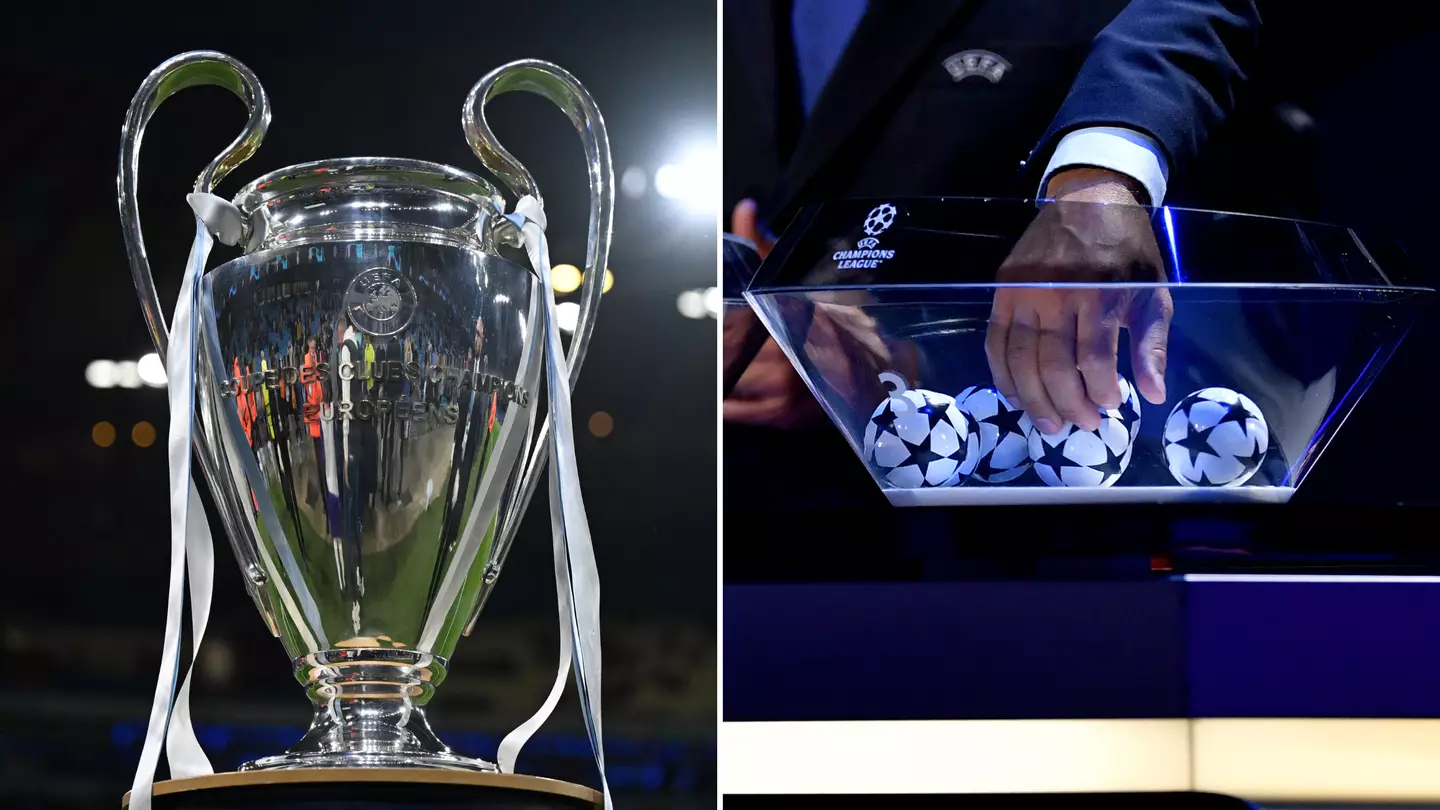
Fans are only just realising how next season's UEFA Champions League is going to work under its new format.
The 2023-24 UEFA Champions League will reach its conclusion on Saturday when Real Madrid and Borussia Dortmund meet in the final at Wembley Stadium.
The clash will be significant whatever the outcome, not least because it marks the end of the Champions League as we know it.
Next season European football's premier club competition will undergo a major format change for the first time since 1992, after UEFA approved the revamp back in May 2022.
Advert
Currently, 32 teams enter the Champions League in a group stage, are divided into eight groups and play six matches, one home and one away against each group opponent.
The top two from each group progress to the knockout stages, where three two-legged rounds whittle the remaining 16 clubs down to two finalists.
Starting in 2024-25, the group stage will be scrapped in favour of an expanded 36-team league phase.
Clubs will no longer play three teams twice, but will take on eight different sides with four home games and four away games.
To determine fixtures, the teams will be ranked in four seeding pots and each team will then be drawn to play two opponents from each of these pots. They will play one match against a team from each pot at home, and one away.
Clubs that finish in the top eight of the league table will qualify automatically for the last-16, while those that finish ninth to 24th will contest two-legged play-off ties for the chance to join them.
Teams that finish 25th or lower will be eliminated from the competition.
Unlike in the current format, teams that fail to reach the last-16 will not drop into the UEFA Europa League.
The revamped Champions League will follow its existing formate from the last 16 onwards, with the final taking place at a neutral venue.

The 2024-25 final will be held at the Allianz Arena in Munich, while the Puskas Arena in Budapest will host the 2025-26 final.
The change in format will increase the total number of matches played in the competition from 125 to 189.
Matches will still be played on Tuesdays and Wednesdays, but will also be staged on Thursdays in weeks when there are no Europa League or Conference League matches taking place.
The league phase will now conclude at the end of January, rather than during December as is currently the case with the group stage.
Germany and Italy will have at least five representatives each after they finished in the top two of the UEFA coefficient rankings.
Six Bundesliga sides will enter the league phase if Borussia Dortmund beat Real Madrid in Saturdays final, as the winner automatically earns a place in next season's competition.
In that scenario, the fifth extra qualification place in the Bundesliga will drop down to sixth, occupied by Eintracht Frankfurt.
Fans have started to realise the scale of the imminent changes, and may aren't fans.
"We will start seeing players retire at age 30 soon because of fatigue," one fan complained about the increased fixture load, while another commented on X: "The saying 'If it ain't broke, don't fix it' comes to mind."
A third fan said: "There was no need of this as the current format was very good but I guess it’s all about the money."
However, one Liverpool fan welcomed the possibility to facing more to quality opponents, tweeting: "It's Champions League. Anyone can come at us. We will be ready."
Topics: Football, Champions League, Fan Reactions